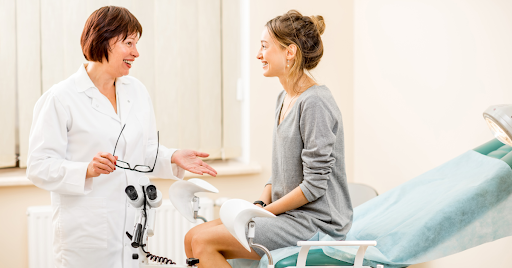Throughout a woman’s life, there are many health concerns she should keep in mind. Often, these concerns change with age. One of the best practices in maintaining good health is getting recommended health screenings to detect any illness early so it can be treated more easily.
Health Screenings For Women
Well-woman care is recommended to all women, no matter their age. Here at Raleigh OB/GYN, we understand the importance of health screenings, as they help to improve your overall health by preventing diseases and other complications. Continue reading to get an overview of some of the important screenings every woman should get throughout her life, when she should get them, and how often.
Cholesterol
Women should get their cholesterol tested regularly starting at age 20 if they are at increased risk of heart disease due to family history or other illnesses that might be linked to heart disease or high cholesterol. Because it varies on individual health, your doctor can talk to you about how often you should be tested.
Blood Pressure
Your blood pressure is probably taken at the beginning of most doctor’s appointments. But if not, it should be tested regularly. You can get tested every two years if you have normal blood pressure lower than 120/80. If you have blood pressure between 120/80 and 139/89, then a test once a year is necessary. If your blood pressure is any higher than that, you should discuss a treatment plan with your doctor.
Breast Cancer
Doctors recommend women of all ages do monthly self-exams to detect any lumps or changes in breast tissue. Beginning at age 40, the American College of Obstetrics and Gynecology recommends health screenings such as annual mammograms.
Cervical Cancer
All women should get regular health screenings for cervical cancer. Pap smears, or Pap tests, are performed by collecting cells from the cervix with a swab and then screening them for abnormalities. HPV tests can also be a part of a cervical cancer screening, as HPV is a leading cause of cervical cancer.
Many gynecologists include a Pap smear in an annual well-woman exam, but not all of them do. If it’s not part of your annual checkup, the general recommendation is as follows:
- Women 21 and over should get a Pap test at least every three years.
- Women 30 – 64 can get an HPV test and a Pap smear together every five years.
- Women 65 and older should talk to their doctor about when and if they need to get a Pap test.
Colorectal Cancer
From ages 50-75, a woman should get health screenings for colorectal cancer once every 5-10 years. This range changes if you are at greater risk for colorectal cancer due to family history, a hereditary condition, inflammatory bowel disease, or if polyps have been found in prior screenings. Then the frequency could be every 1-5 years.
There are several types of colorectal screenings, and your doctor will discuss with you the best option for you. These screening methods can include:
- Colonoscopy
- CT colonography
- Flexible sigmoidoscopy
- Barium enemas
- Stool tests
Diabetes
Type 2 diabetes affects almost 10% of the U.S. population, with even more Americans considered prediabetic. How often and when you should get tested for diabetes varies on your overall health, family history, and whether you have other conditions that are linked to the disease.
It is recommended for most people to get tested for diabetes once every three years after age 45. If you have high blood pressure, especially if you take hypertension medication, you should get screened for diabetes earlier and more often than people without hypertension.
Sexually Transmitted Infections
Anyone who is sexually active is at risk for sexually transmitted infections. Even if you are generally knowledgeable about STIs, you might not know when or how often to get tested for STIs. The CDC provides excellent information on many sexually transmitted diseases, including the symptoms, risks, and guidelines for health screenings and treatment.
If you are sexually active, it is important to know the symptoms of STIs and when you should get tested, even if you use protection. STIs can affect not only your sexual health but other body systems. Left untreated, they can be serious. However, with appropriate screening, many STIs are treatable, if not curable. The most common STIs include
- HPV (Human Papillomavirus)
- HSV (Herpes Simplex Virus)
- Chlamydia
- HIV (Human Immunodeficiency Virus)
- Gonorrhea
- Syphilis
- Trichomoniasis
At Raleigh OB/GYN, we are committed to providing care for all stages of a woman’s life. This includes necessary health screenings to monitor well-being and prevent illnesses. If you have questions about what kind of health screenings you should get and when, contact us at 919-876-8225 or request an appointment online.


